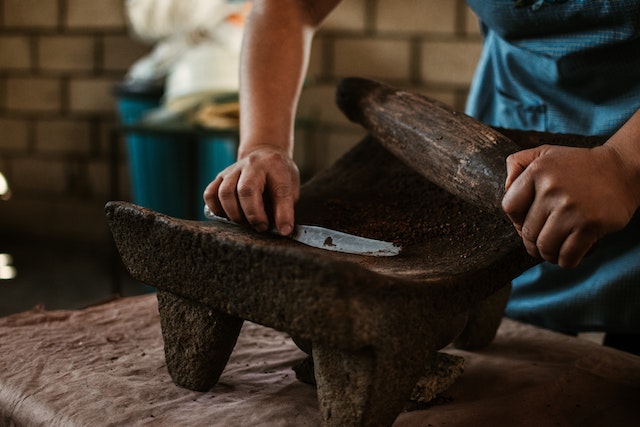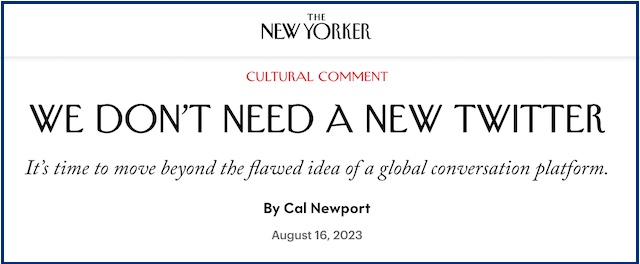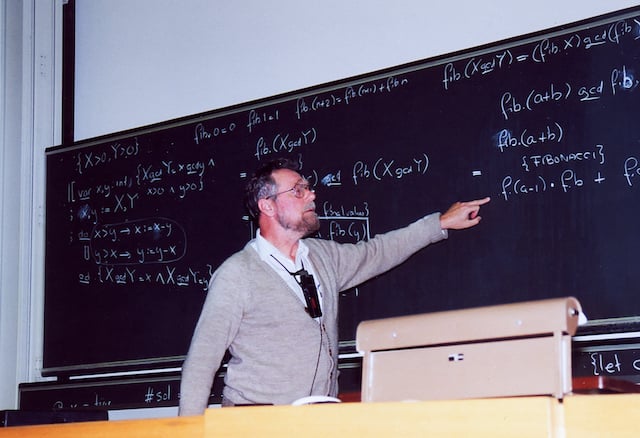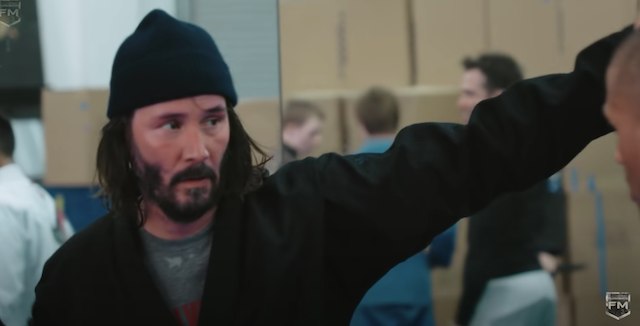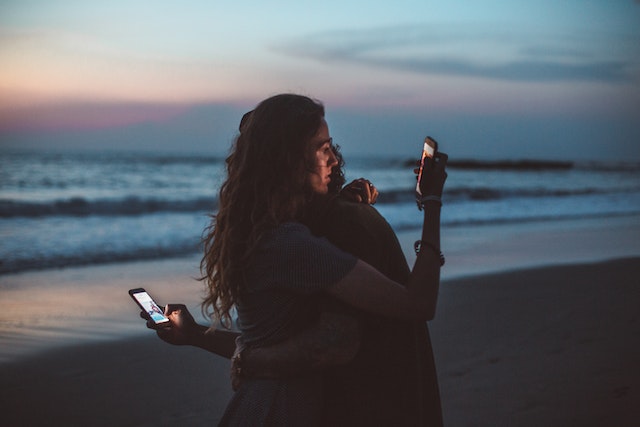
Disruption and disorder have always stalked the human condition. This reality sometimes plays out on the grand scale, as in the brutality of terror and war, and sometimes more intimately, as in the sudden arrival of ill health or a personal betrayal.
Though such upheavals are timeless, our options for response have continued to evolve. The last decade or so has added a new, culture-warping tool to this collection of coping mechanisms: smartphones. Or, to be more specific, the algorithmically-optimized content delivered through these devices.
The techno-psycho dynamics at play here are straightforward. The algorithms that drive content curation platforms such as TikTok, Twitter, or Instagram are designed to increase engagement. This is an inherently interactive process: the services decide what to show you by combining what they already learned about you in the past with observations on what seems to be drawing more of your attention in the moment. In a period of disruption, this will, more likely than not, lead you deep into digital grooves that promise to offer some relief from your emotional pain.
This relief can be delivered by drowning out your pain with even stronger emotions. These platforms are adept, for example, at stoking a satisfying fire of anger and outrage; a repeated electronic poking of a psychological bruise. For those who were unlucky enough to wander onto Twitter in the immediate aftermath of the horrific terrorist attack on southern Israel last week witnessed this effect in its full unnerving power.
These platforms are also able to move hard in the other direction and serve up the grim surrender of apocalyptic narratives. This was made apparent during the coronavirus pandemic when many were lured by their phones into a sense of survivalist despair that left physic scars that persisted in constraining their lives well after the virus’s inevitable transition toward endemicity.
This relief delivered by our phones is not always about amplifying feelings. It can also be delivered in the form of numbness: drips of endless, meaningless, shiny, shallow distraction that take the edge off your distress. TikTok specializes in this style of deliverance: swipe, swipe, swipe, until you temporarily dislocate from the moment.
As we right now find ourselves mired in an extended period of unusually heavy disorder, it seems an appropriate time to step back and ask how well smartphones have been serving us in this manner. Has the escape they offered led us to a lasting calm or a sustainable response to our travails? Few believe they have.
In search of a better alternative, I reached out to my friend Brad Stulberg, who earlier this fall published a bestselling book, Master of Change, about how to navigate unavoidable upheaval. (You can also watch my recent podcast interview with Brad here.)

